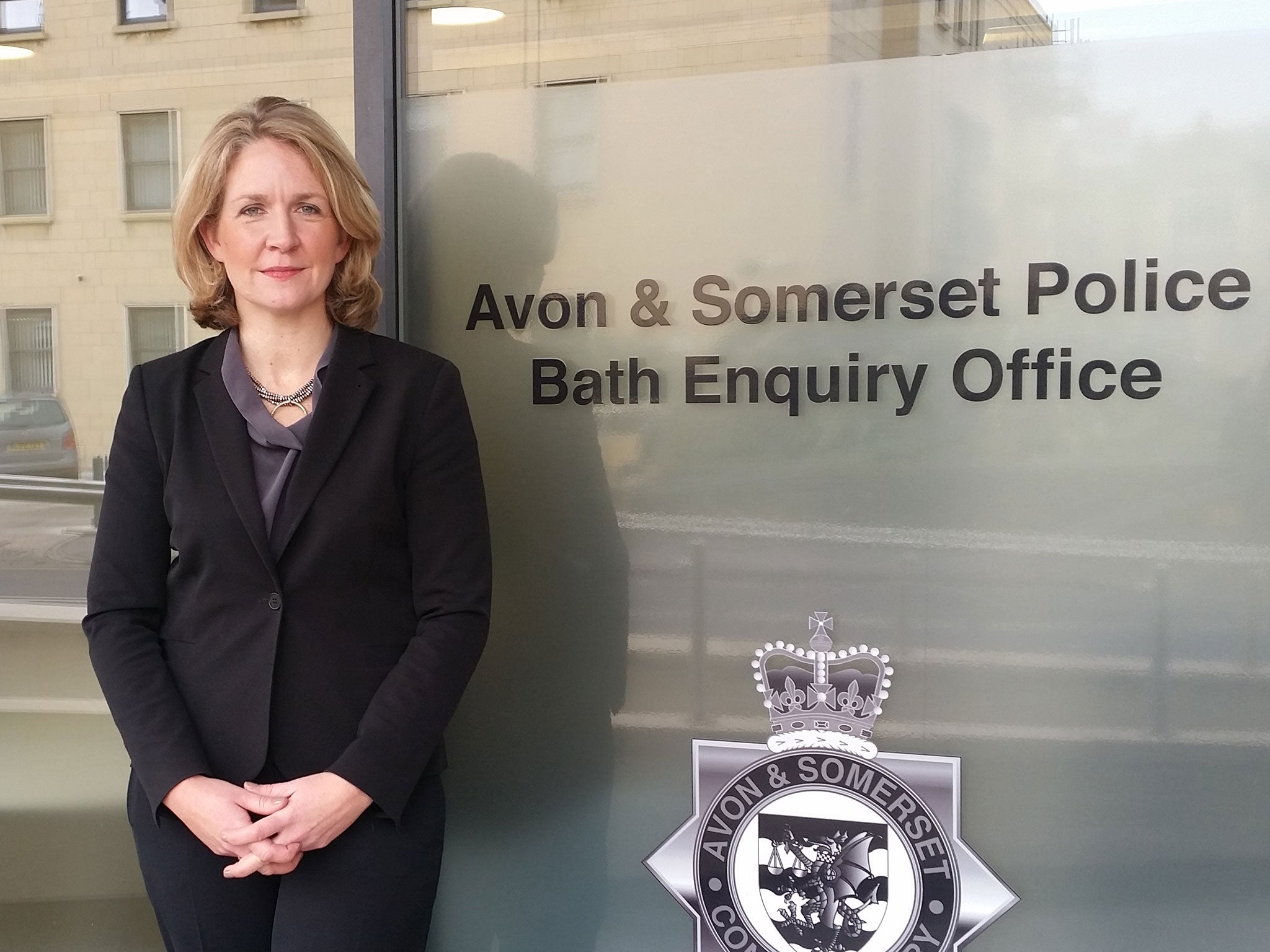Police warn modern slaves 'staffing nail bars across UK' as Vietnamese gang jailed in landmark case
Exclusive: Nail-bar manager had £60,000 hidden inside soft toy as vulnerable girls forced to work without pay
Members of one of the most sophisticated modern slavery gangs ever caught in Britain have been jailed in a case that used new laws against enforced labour for the first time.
Police warned other trafficked victims are being “hidden in plain sight” in nail bars across the country, with money from unsuspecting customers funding organised crime.
Three members of a Vietnamese gang uncovered in Bath were jailed for a total of nine years for forcing teenage girls to work without pay and keeping them in squalid conditions.
They transferred their victims to beauty parlours across England while dumping phones in efforts to evade police, sparking an intelligence operation involving the National Crime Agency.
Investigators said they had just scratched the surface of a far-reaching criminal underworld that sees girls bound to their abusers “by invisible chains”.
Detective Inspector Charlotte Tucker, who led the operation for Avon and Somerset Police, said teenage girls were being “moved around as commodities” as part of sophisticated money-making enterprises.

“We’ve got three people convicted out of this group, we haven’t got all of them,” she told The Independent. “I think we are just scratching the surface on this.”
Thu Huong Nguyen, a 48-year-old Vietnamese woman known as Jenny, was jailed for five years for conspiring to facilitate the movement of people for labour exploitation and require others to perform forced or compulsory labour.
Judge Michael Chambers QC told the defendants they were “devious and manipulative” at a hearing on Tuesday, saying they treated the victims as commodities and exploited them for “pure economic greed”.
Viet Hoang Nguyen (Ken), 29, and Giang Huong Tran (Susan), 23, also were also sentenced for conspiracy to require others to perform forced or compulsory labour at Stafford Crown Court.
Ken was jailed for conspiracy to arrange or facilitate the movement of people for labour exploitation. He was jailed for four years and Susan was given a two-year suspended sentence.
Investigators believe their “cash-only” nail bars are a fraction of those run by gangs using them to launder money from cannabis factories and other criminal activity in the UK.
No links were proven in the Bath case, but Jenny could not explain the origin of £60,000 that had been hidden inside a rabbit soft toy at her home in Southdown Road, Bath.
She managed the Nail Bar Deluxe in Bath city centre, which was first visited by police and welfare officials in February 2016.

Jenny was not in the shop at the time and DI Tucker said one of the victims told police she arrived in the UK “in the back of a lorry with cardboard boxes” via France.
When the ringleader arrived, a Vietnamese interpreter overheard her telling the girls: “Did you say what I told you to tell them? Did you stick with the story?”
The victim and another teenage girl were taken into protective custody but soon fled back to the gang.
They were transferred to other nail bars in Cheltenham, Burton-on-Trent, Gloucester and Derbyshire, leading police to find new victims and perpetrators as the group inadvertently revealed the scope of their own operations.
The victims, who are also Vietnamese, had traumatic childhoods and endured physical and verbal abuse while being forced to live and work in poor conditions.
But DI Tucker said the girls did not initially understand their treatment was abuse, believing Jenny “was kind to them and looked after them” as undocumented migrants.
“It’s so tragic to think that in the age we’re living in now we’ve got young vulnerable girls being forced to work in the UK,” she added.
“They find themselves in a sophisticated money-making operation but their vulnerabilities are so apparent. These girls have no footprint.

“They’ve never been seen a GP, never been to school – the language barrier is massive.
“They’re away from their families, working for nothing and they’re reliant on the people controlling them.”
The detective described the group as “really savvy” in attempts to stop the girls being traced, changing phone numbers and getting rid of handsets, but a widening operation by six police forces and the National Crime Agency (NCA) repeatedly tracked them down.
Intelligence work led police to a nail bar in Abbey Arcade, Burton-on-Trent, where one of the missing girls was found alongside two further victims and the investigation widened through England.
Detective Inspector Clair Langley, of Staffordshire Police, said the speed the gang moved victims around the country “indicates their level of organisation”.
“This is the first successful prosecution for child labour exploitation and child trafficking under the Modern Slavery Act and we hope it sends out a clear message – we won’t tolerate this activity and we will bring offenders before the courts,” she added.
Girls had been kept in the loft of Jenny’s home in Bath and in a small room in Deluxe Nail Bar, being driven from one to the other morning and night.
DI Tucker said one of the girls had been allowed the small freedom of walking to a local shop and back but said they were “tied by invisible chains”.
“They don’t have their own passports, they don’t have any money and if they run they’ll find themselves scooped up in another network,” she explained.

“They talked about coming here for a better life and to find work but we’re unaware of them sending money back to their families.”
Victims can be controlled using debt bondage for transport to the UK, food and board, or by using threats to kill friends and relatives in their home countries.
The girls found in Bath are now being cared for by social services in the South-west.
Police believe the gang “cut them loose” after they became a liability by repeatedly leading police to different businesses.
At least one other member of the same Vietnamese network is being hunted by investigators after he skipped bail shortly before being charged with modern slavery offences.
DI Tucker said the senior figure was believed to be working at another nail bar but fears the “true extent of the operation” has not yet been uncovered.
“They are hiding their victims in plain sight,” she added. “People think they are getting a bargain getting their nails done or their car washed, but they don’t appreciate they’re funding these organised crime groups.”
She urged people to look for warning signs such as workers speaking poor English, appearing to be very young or working at places with low prices, rapid staff turnover and “controlling” managers, and contact police with concerns.
Nail bars were identified as a hub of modern slavery in a report released in September, which found 1,747 Vietnamese nationals were reported as suspected trafficking victims between 2009 and 2016.
Kevin Hyland, the Independent Anti-Slavery Commissioner, identified cannabis cultivation, sexual exploitation and domestic labour among other abuses.
“We see a proliferation of nail bars in the UK but very little happening about them,” he said.
Authorities have been condemned for arresting trafficking victims for immigration offences and deporting them after raids on nail bars in the past, but understanding appears to be improving.
Chief Constable Shaun Sawyer, the National Police Chief’s Council (NPCC) lead on modern slavery, said dedicated investigators were fighting the practice across all law enforcement agencies.
“Across England and Wales there are currently more than 400 active investigations, an increase of 218 per cent since November 2016,” he added.
“Almost 2,500 modern slavery crimes were recorded in the first six months of 2017, a 129 per cent increase on the previous year.
“To eradicate slavery, people across the UK should begin difficult conversations within their communities about the demand for cheap goods and services which fuels slavery here and across the world.”
Members of the public are asked to call the Modern Slavery Helpline on 08000 121 700 when they are uncomfortable or believe a person may be at risk.

